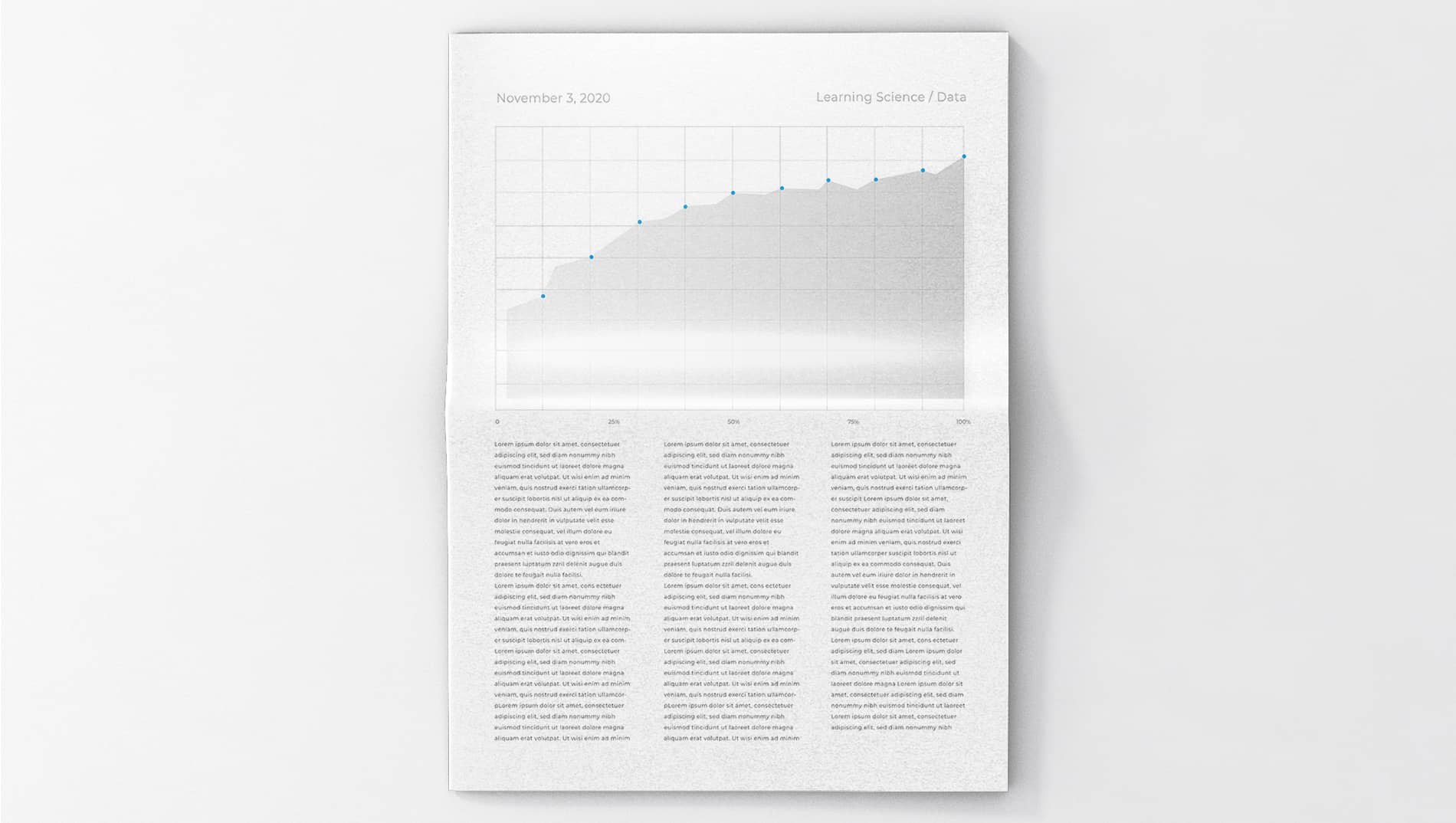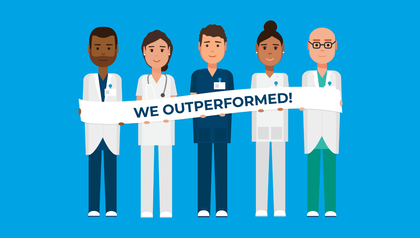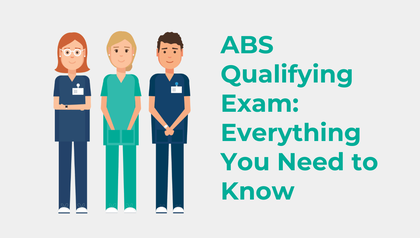ABSITE: Everything You Need to Know
The ABSITE exam (American Board of Surgery In-Training Examination) is an annual in-training exam used to evaluate general surgery trainees. Trainees are notified of the date of their exam (usually the exam is late January to early February) at the start of the academic year.
Exam Eligibility
Eligible candidates include both preliminary and categorical general surgery residents. Preliminary residents usually take only one or two years of general surgery residency before entry into an advanced specialty program (such as radiology). By contrast, categorical residents undertake full residency training for a minimum of five years to achieve board certification in general surgery.
What is the Purpose of the ABSITE?
The purpose of the exam is to ensure that residents are studying the core curriculum of general surgery training. The ABSITE is also intended to prepare categorical residents to pass the American Board of Surgery general surgery boards (i.e., the Qualifying Exam, or written boards, and Certifying Exam, or oral boards), which is required for board certification in general surgery.
A study by de Virgilio et al. found that those who scored in the 35% percentile or below on the ABSITE were at increased risk of failing both the Qualifying and Certifying exams. Thus, by preparing well for the yearly ABSITE, trainees will also be preparing for the written and oral boards.
General surgical training is often undertaken as a path to other surgical subspecialties, such as plastic surgery, vascular surgery, endocrine surgery, colorectal surgery, pediatric surgery, cardiac/thoracic surgery, hepatobiliary surgery, surgical oncology, and minimally invasive surgery. These fields can be highly competitive and having strong ABSITE scores may play a critical role in a desirable fellowship match.
How Long is the ABSITE?
The ABSITE is a five-hour computerized exam given in one block with 250 multiple-choice questions. It is administered using each program’s own computer facilities. Breaks are allowed at any point during the exam.
ABSITE Exam Breakdown
The ABSITE covers a range of topics based on the SCORE Curriculum Outline for General Surgery. Per the ABS, topics not covered on SCORE but tested on the ABSITE include Radiology, Outcomes, and Ethics. Radiology is usually tested in conjunction with a clinical scenario (e.g., the radiographic finding will influence management). The ethics component is best prepared for by building on ethical principles learned in medical school or while studying for the USMLE exams; however, the context will be surgery and the care of surgical patients. Outcomes is a subtopic of Biostatistics and Evaluation of Evidence on the SCORE Curriculum.
The ABSITE consists of approximately 80% clinical management questions and 20% applied science questions. Clinical management questions provide a case scenario and will often subsequently ask for the next step in management. This next step might involve further workup or intervention. Applied science questions might ask what the underlying pathology of a specific condition is, or the specific laboratory markers utilized for diagnosis. A sample mini-test that replicates the actual exam format is available from the ABS.
Per the ABSITE Content Outline, the main categories, with their approximate percentage weights on the exam, are:
- Patient Care – 72%
- Medical Knowledge – 24%
- Other (Radiology, Outcomes, and Ethics) – 4%
The Patient Care category is composed of 28 topics, while the Medical Knowledge category is broken down into 13 topics. Of the Patient Care topics, 14 are further broken down by subcategory (Abdomen, Alimentary Tract, and Vascular). All of the topics are given a percentage weight reflective of their approximate distribution on the exam.
It’s helpful to refer to the standard content outline linked above to guide your studying. For example, since Abdomen has a target percentage weight of 17%, dedicating 17% of your study time to abdomen-based questions and reviews may be prudent. Dividing your time by topic based on the official percentage weights is a good way to ensure you’re covering all subject areas appropriately.
How Long Do I Need to Study for the ABSITE?
The amount of time needed to study for the ABSITE varies by individual. However, the benefits of early engagement with the material are undeniable. Most of our ABSITE question bank subscribers opt for a 3 or 6 month subscription.
Many general surgery residencies include an educational component based on the SCORE Curriculum that prepares the resident/trainee for the ABSITE. These may include weekly lectures by faculty and house staff. Regular and repeated exposure to the material is beneficial for developing a baseline knowledge set that you can build on as the ABSITE approaches. Active learning comes in the form of volunteering during Q&A sessions in lectures, asking attendings questions when engaged in patient care, and using question banks as much as possible.
In addition to building on baseline knowledge throughout the year, there is a time when intense, focused ABSITE preparation is required. This is, on average, two months prior to the ABSITE test date. In other words, by November (given that the exam is usually in late January to early February), more focused preparation is required.
Top 3 Things You Need to Know If You’re Taking the ABSITE
- Address weak subjects. When studying for the ABSITE, be sure to identify areas of weakness and shore these up well. Thus, when using question banks like TrueLearn’s ABSITE SmartBank, select your weak subjects and answer multiple questions in that area. This will highlight topics that require further review. For example, you might find that you’re answering vascular questions incorrectly due to limited knowledge of the size criteria for the management of arterial aneurysms. Taking the time to refresh on size criteria might then lead to improved results. If in a time crunch, focus on the most weighted topics to ensure you approach test day with confidence.
- Incorporate effective study methods like spaced repetition and active learning techniques like “teaching the material.” Spaced repetition involves testing yourself on a subject at different time intervals. For instance, you might answer colorectal questions right after reading the material in a textbook, and then retest yourself a week later. The idea behind “teaching the material” is that if you can explain an answer then you understand the solution, and this will improve your comprehension and retention of the material. Thus discussing the material with other trainees will prove helpful for many residents.
- Start studying early. It’s imperative that you give yourself enough time to study, usually two to three months. Not every study method works for every trainee. It’s important that you give yourself enough time to trial and error the best study method for you. However, keep in mind that completing a question bank has been shown to improve outcomes on the exam.
Author: Nicole Ilonzo, MD, graduated from general surgery residency at Mount Sinai St. Luke’s-West in 2019 and is currently completing a vascular surgery fellowship.


